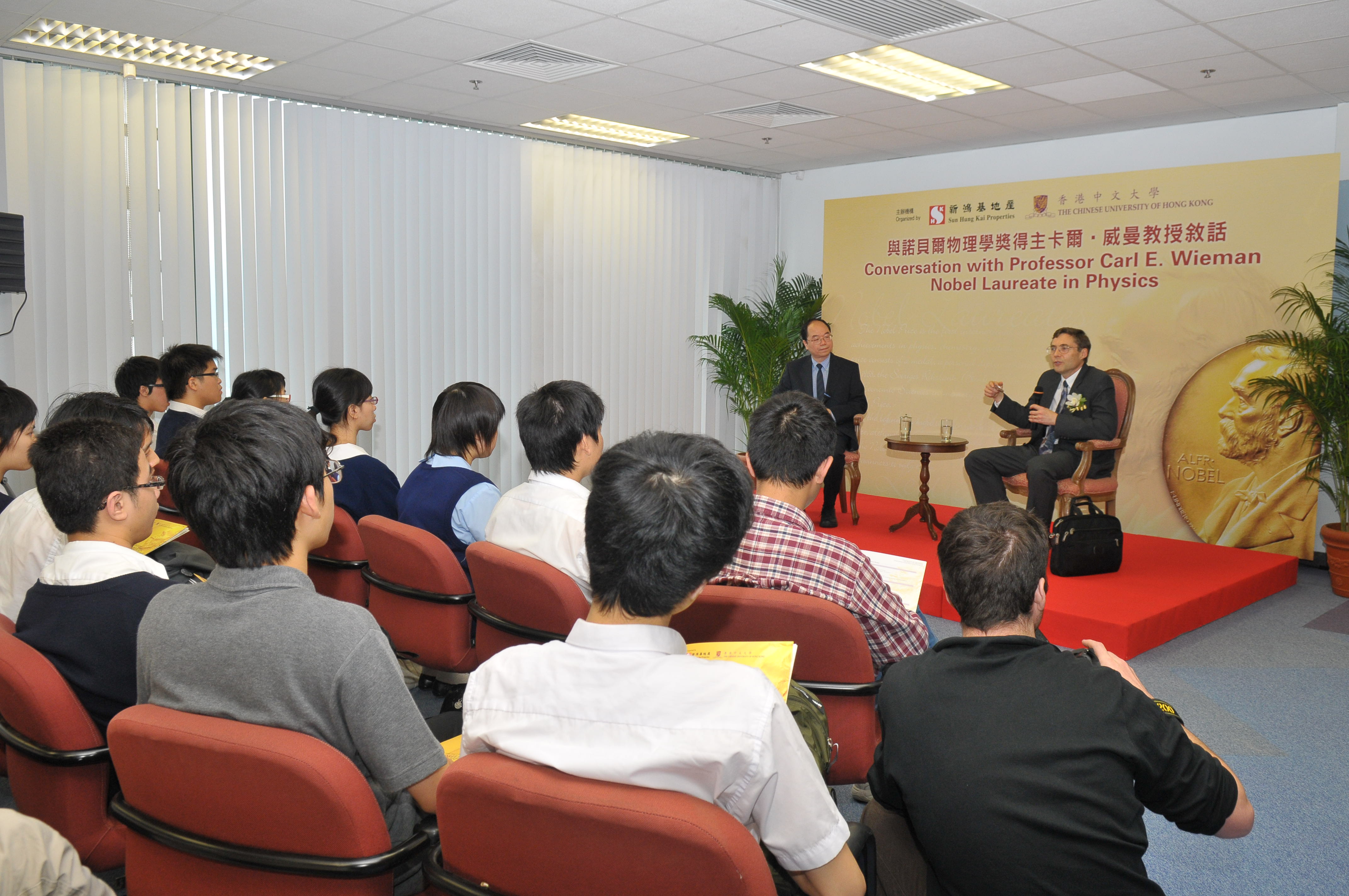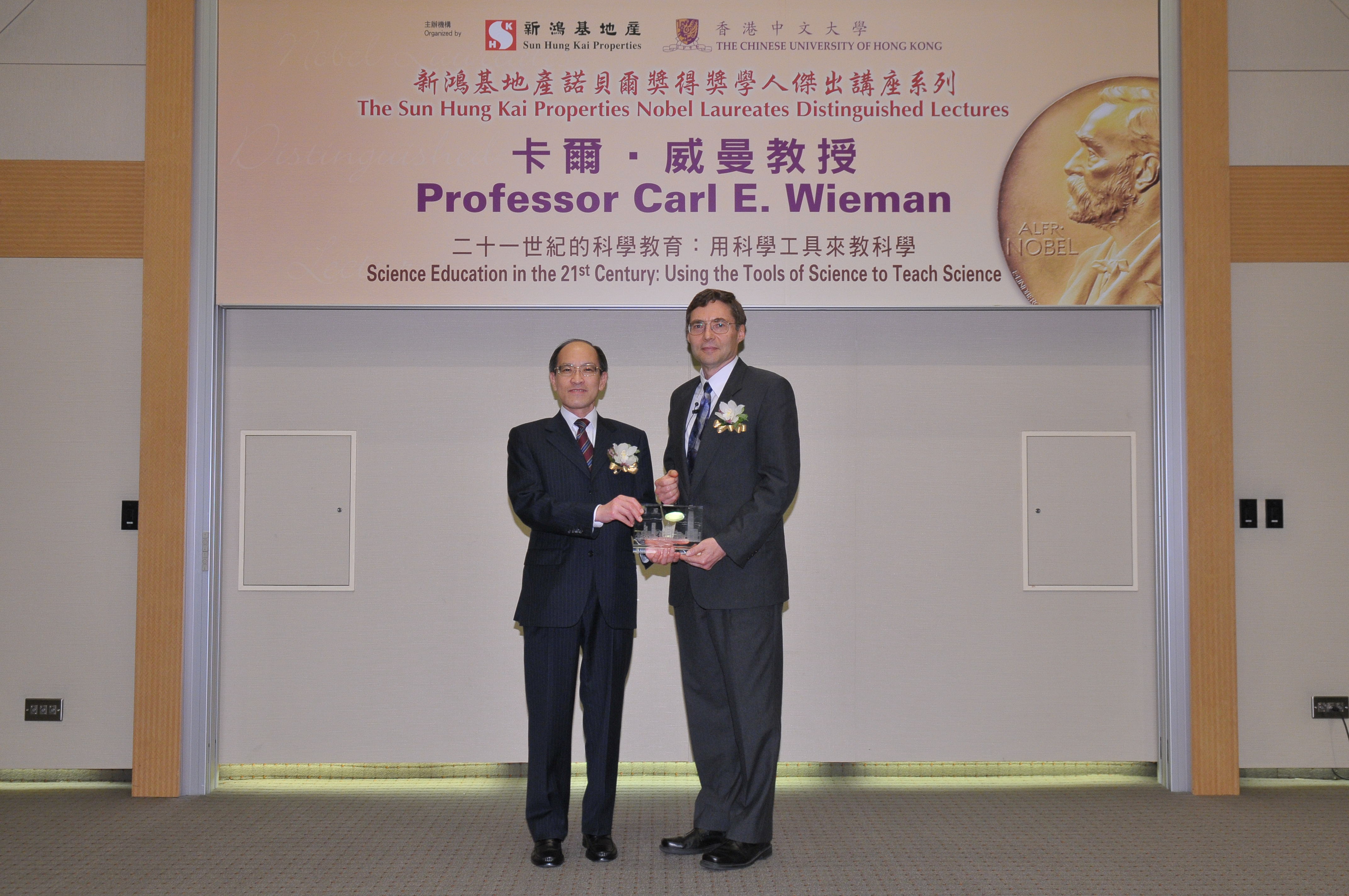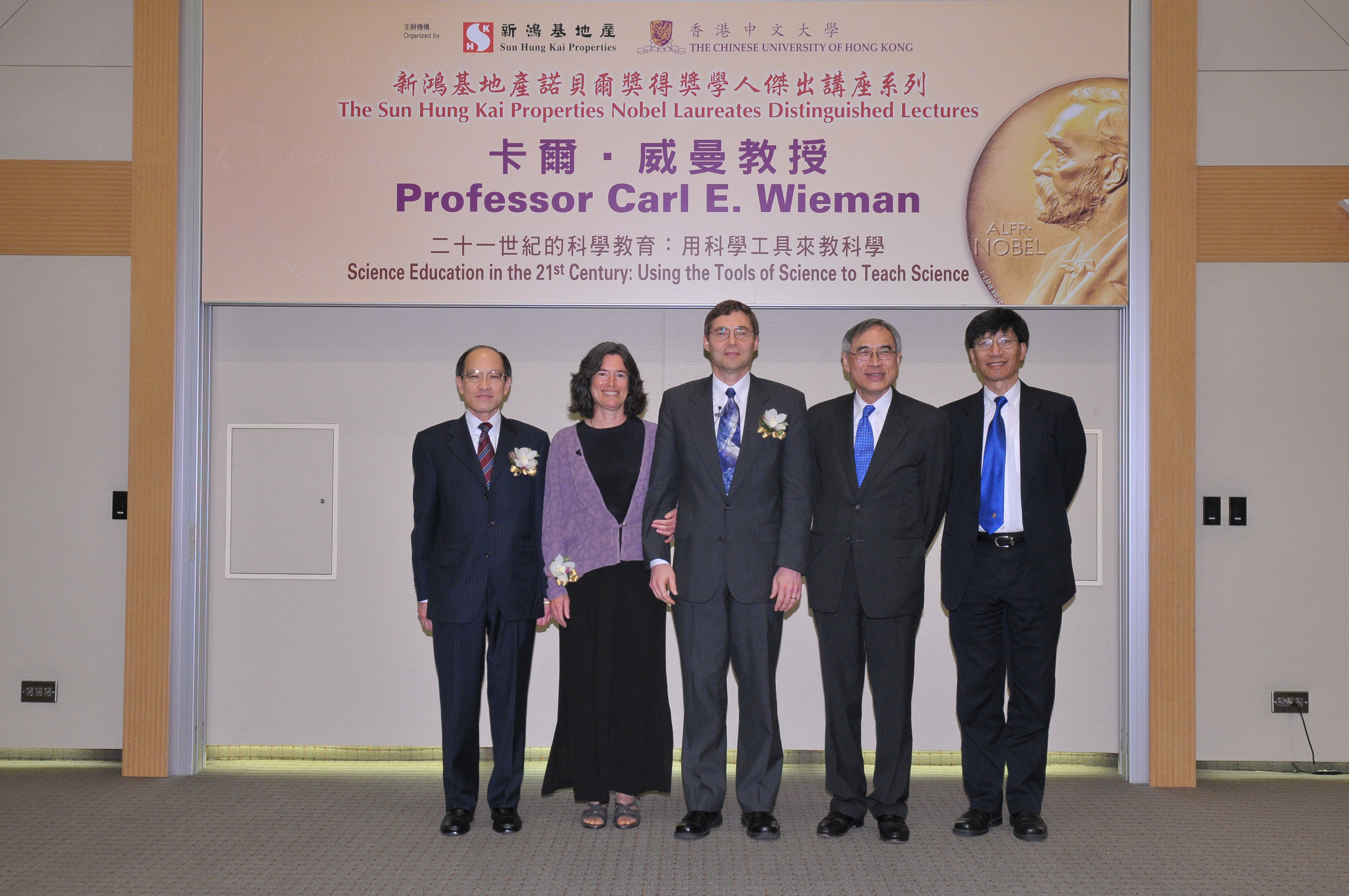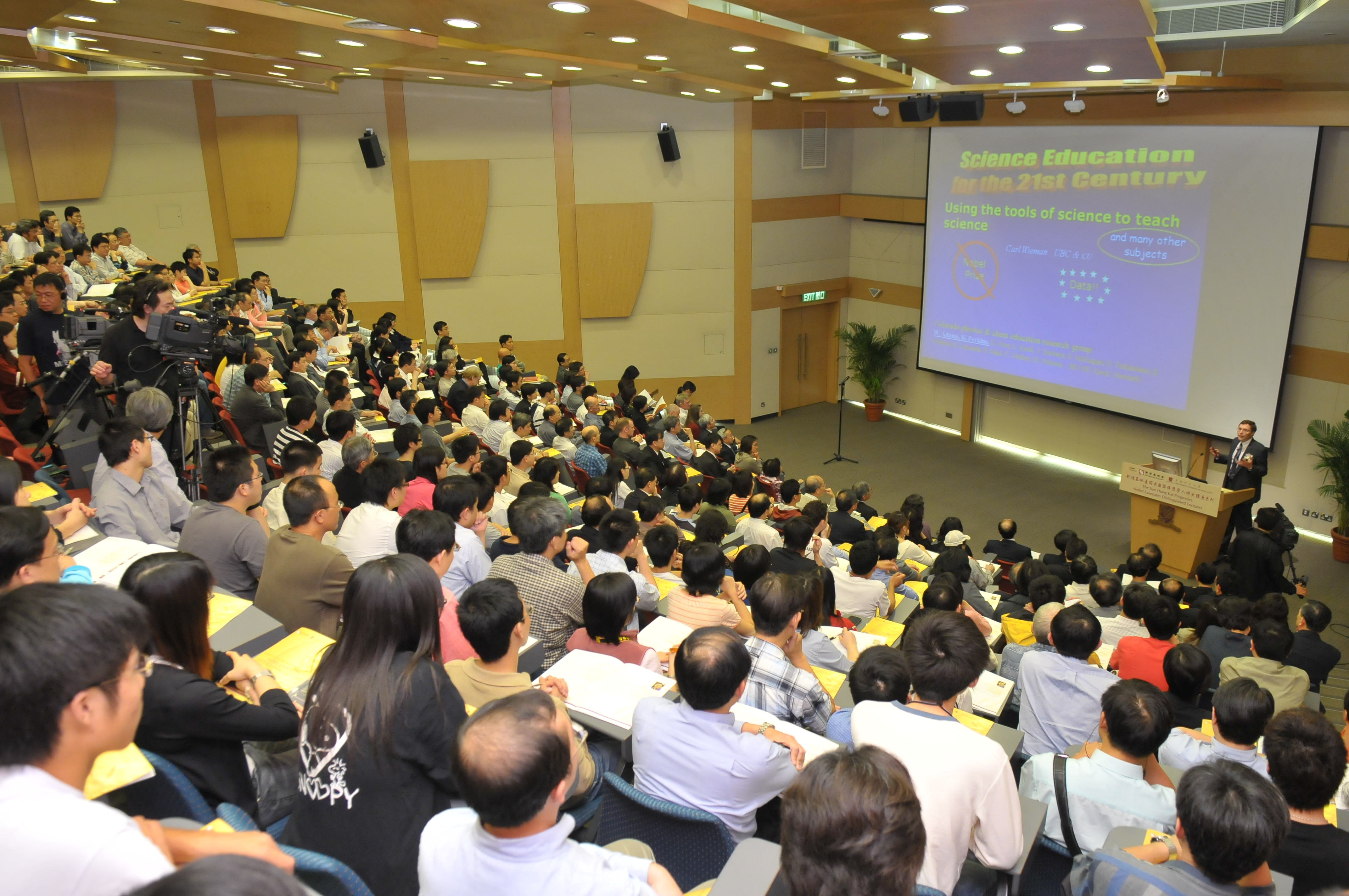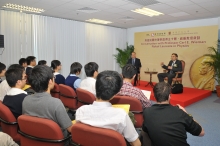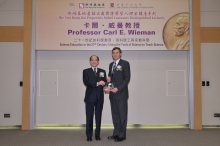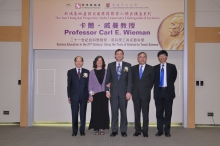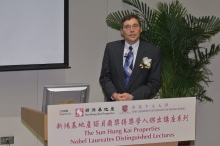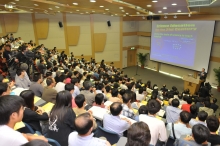News Centre
SHKP and CUHK Present Nobel Laureate LectureEminent Professor in Physics Speaks on Science Education in the 21st Century
Sun Hung Kai Properties (SHKP) and The Chinese University of Hong Kong (CUHK) presented again the widely acclaimed Sun Hung Kai Properties Nobel Laureates Distinguished Lectures today (21 May), featuring Professor Carl E. Wieman, 2001 Nobel laureate in Physics on “Science Education in the 21st Century: Using the Tools of Science to Teach Science”. During the lecture, Professor Wieman shared his scholarship with around 300 CUHK staff, students and alumni, members of the political, commercial and education sectors, as well as the community.
As an award-winning educator, Professor Wieman also met with tertiary and secondary school students to share his insight on the teaching and learning of science before the lecture.
SHKP Executive Director Michael Wong said, “In the knowledge-based economy of the 21st century, SHKP works to promote education and encourage life-long learning. We are very pleased to present the Nobel Laureates Distinguished Lectures in collaboration with the Chinese University of Hong Kong to provide Hong Kong people a chance to benefit from the insight of world-class scholars. I believe it will help us lift horizons and bring us closer to the world trends, so as to equip for challenges.”
CUHK Vice-Chancellor Professor Lawrence J. Lau thanked SHKP and its Vice Chairman and Managing Director Dr Raymond Kwok for their unwavering support over the last four years. He also expressed his gratitude to Professor Wieman for sharing his distinguished scholarship and experience.
Guided by experimental tests of theory and practice, science has advanced rapidly in the past 500 years. However, science education which is guided primarily by tradition and dogma has not progressed much relatively. Latest research on learning shows that traditional science classes and exams may fail to be an effective tool to gauge learning progress. In the lecture, Professor Wieman showed some of the drawbacks of traditional educational practices and explained how other new practices and technology promised to be a better option. In his analysis, he also demonstrated how these new teaching practices conformed to the findings of cognitive science.
For greater social benefits and better public awareness of the six Nobel Prize categories: Physics, Chemistry, Physiology or Medicine, Literature, Peace and Economic Sciences, the lecture was broadcast live to local universities, and Hong Kong Science and Technology Parks. It was also available on the Hong Kong Education City web site for online viewing by secondary school students and teachers. There was also a live feed to Peking, Fudan, Shanghai Jiao Tong, Tsinghua, Zhejiang, Nanjing and Sun Yat-sen Universities on the mainland to promote academic exchange.
Professor Wieman received his BS from the Massachusetts Institute of Technology in 1973 and his PhD from Stanford University in 1977. He was at the University of Colorado from 1984 to 2006 as a Distinguished Professor of Physics. In January 2007, he joined the University of British Columbia as the Director of the Carl Wieman Science Education Initiative (http://www.cwsei.ubc.ca), which aims at achieving departmental-wide sustainable change in undergraduate science education. He has carried out research in a variety of areas of atomic physics and laser spectroscopy. His outstanding contributions to education have also earned him many awards, among which are the National Science Foundation’s Distinguished Teaching Scholar Award in 2001, the Carnegie Foundation’s US University Professor of the Year Award in 2004, and the American Association of Physics Teachers’ Oersted Medal in 2007.
To educate a broad range of students, Professor Wieman has worked on a variety of research and innovations in teaching physics, including the Physics Education Technology Project (http://www.colorado.edu/physics/phet) that creates educational online interactive simulations and studies their effectiveness. He also does research on student beliefs about physics and on problem-solving skills. He is a member of the National Academy of Sciences and chairs the Academy Board on Science Education.
The Sun Hung Kai Properties Nobel Laureates Distinguished Lectures were inaugurated in 2004 in conjunction with The Chinese University of Hong Kong. The series allows various Nobel laureates to speak to a broad cross-section of the community, to promote the discovery and the dissemination of knowledge, professional and entrepreneurial expertise and contributions to humanity. After this, the twelfth installment of the series, 19 Nobel laureates or renowned scholars had lectured in Hong Kong.
